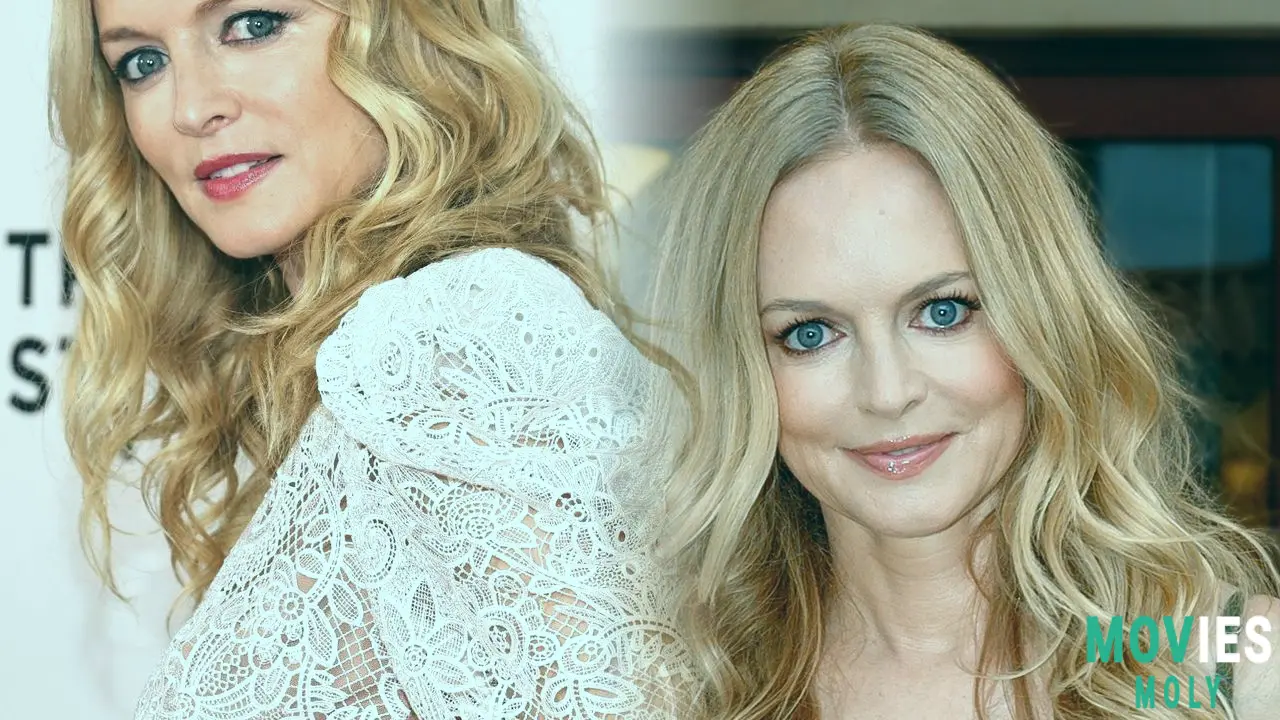Heather Graham isn’t just back on screen—she’s back in control. And for a woman whose career has spanned iconic cult hits, #MeToo reckonings, and relentless typecasting, that control tastes sweeter than fame. With Chosen Family, a film she wrote, directed, and stars in, Graham delivers more than a comeback. She delivers a mission statement.
How Heather Graham turned personal pain into a comedic cinematic triumphShot through with humor, heartbreak, and hard-won wisdom, Chosen Family is Heather Graham’s catharsis—and it hits like a punch of late bloom empowerment. The film follows Ann, a child-free yoga instructor navigating a toxic family dynamic and messy love life. Sound familiar? That’s because Graham—now 55—poured her own experiences into the script like emotional fuel.
“I was a people pleaser my whole life,” Graham admits in a recent interview. “It wasn’t until my 40s that I realized I could just ask myself, ‘What do I want?’ and make myself happy.” That revelation didn’t just change her life. It changed her art.
Ann’s story is one of boundaries broken and personas peeled away. It’s about saying no so often that it becomes your superpower. And for Graham, who spent decades trying to please everyone—including a family she’s been estranged from for nearly 30 years—it’s nothing short of liberating.
Estranged from her family, but closer than ever to her authentic self

Graham’s relationship with her parents—and even her sister—is more than strained; it’s non-existent. Her new film doesn’t just explore dysfunctional family ties; it dares to depict what real emotional survival looks like when blood isn’t enough. “I couldn’t set boundaries with them that they'd respect,” she says. “So I just... stopped talking to them.”
Unlike many who mourn family rifts, Graham describes her detachment as a form of emancipation. “The moment I stopped needing to please them, my life opened up,” she recalls. It’s a powerful reflection from someone who once lived under the weight of “judgmental, authoritarian, patriarchal” expectations.
And yet, despite the distance, Graham doesn’t speak with bitterness. She speaks with clarity. Her family tried to reel her back in with religion and reproach, offering confessionals instead of comfort. She chose freedom instead. That choice—so often vilified in society—is what gave her agency. And now, it’s fuel for her storytelling.
Heather Graham’s fearless embrace of femininity, freedom, and failure to please

For a career that includes Boogie Nights, Austin Powers, and Swingers, Graham has long been seen through the lens of sex appeal. Rollergirl, Felicity Shagwell, the glamorous love interest—she played them all. And she admits she sometimes enjoyed playing that fantasy. After all, she grew up feeling like a “nerdy girl.” But beneath the glitter, she craved roles that saw her whole self—not just her shine.
Now, with Chosen Family, she’s not only acting differently—she’s directing it. And that shift from object to subject is where her real power lies. “I was being cast a lot as the sexy character,” she says. “I wanted to tell stories where women aren't just accessories to men’s plots.”
It wasn’t easy. Getting funding for a female-led, non-male-centric film still means begging for big names—even if it’s just for free. “If there’s no man hero, it’s harder to get men to attach themselves to the project,” she laughs—though you can hear the frustration underneath. Julia Stiles’ involvement helped greenlight the project. Graham is grateful. But she doesn’t hide the truth: Hollywood still gambles more on bullet points than on stories—and those bullet points are usually men with guns.
Surviving Weinstein and the system: Heather Graham’s quiet crusade
Graham’s industry survival story isn’t complete without the shadow of Harvey Weinstein. She曾遭遇他的性骚扰attempts—a grim echo of too many women’s stories. Her account is sober, not sensational. She wasn't equipped to fight him then, but she won't let his downfall go unmarked. “Seeing him finally not get away with it—that was justice,” she says. “For so long, there was victim shaming. #MeToo changed that.”
And yet, even with #MeToo’s momentum, Graham knows the fight for real equality is far from over. “Most movies still rely on male stars,” she says. “If it’s a woman leading, they want two male stars to support her. It’s crazy.” But she remains optimistic. She's part of the change, not just commenting on it.
Choosing not to have kids and still feeling ‘powerful and sexy’ at 55
Perhaps one of the most striking aspects of Graham’s current persona is her unapologetic stance on motherhood—or the lack thereof. Like her character Ann, she’s child-free. And she’s more than okay with it. “Eighty percent of the time, I’m glad I don’t have kids,” she says. “And I feel free. Really free.”
She admires women who reject societal scripts, calling out the cultural pressure to reproduce as just another form of people-pleasing. “They say: ‘You need to have kids.’ But why? If you’re not trying to please, what do you really want?”
And in a world obsessed with youth, Graham revels in her age. She’s been cast in roles meant for women a decade younger and welcomes the challenge. “There’s a sexy power in aging as a woman,” she says. “If you feel hot, you feel hot. It doesn’t matter what anyone else thinks.”
Heather Graham’s ‘Chosen Family’ is a celebration of agency, not apology
Heather Graham’s latest isn’t just a film—it’s a manifesto for anyone who’s ever felt trapped by expectations, be they familial, societal, or industrial. Chosen Family is about breaking free, embracing flaws, and finding joy in the messy middle of life. It’s about being hot in a bikini at 55, not because you want approval, but because you want to.
For a genre writer like me who digs into superheroes and blockbusters, Graham’s story is its own kind of hero arc. No cape. No explosions. Just a woman who lived in the shadow of everyone else’s desires—and finally stepped into her own light. That’s the kind of power we don’t see enough of on screen. And when we do, it’s impossible to ignore.
Chosen Family is available now on digital platforms. And Heather Graham? She’s never been more visible—or more unstoppable.






